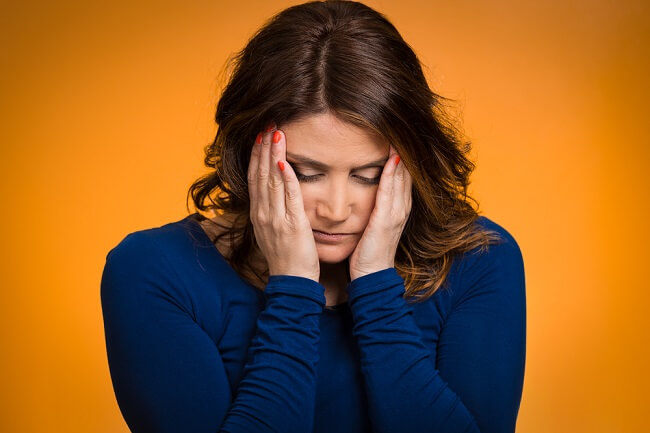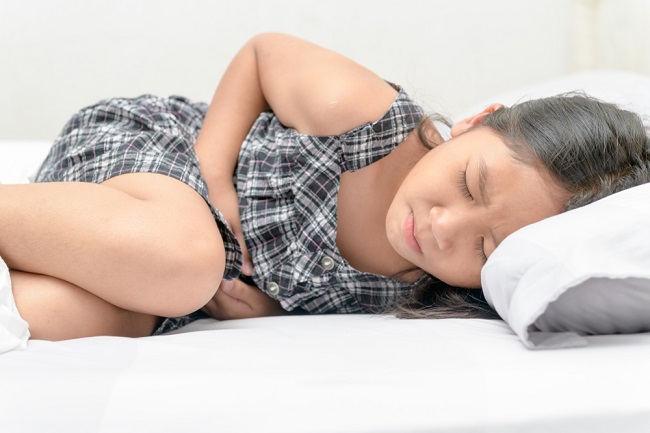Haphephobiais an exaggerated fear of being touched by others. This phobia is a specific type of phobia and is relatively rare. If not handled properly, haphephobia can interfere with the patient's quality of life.
For some people, getting physical touch from other people is normal. In fact, physical touch can be a love language to express feelings of love and affection. Even so, this is not the case you know for sufferers haphephobia.

people with haphephobia will experience irrational fear and panic when touched by others or about to be touched. Besides being referred to as haphephobia, this condition is also known as aphenphosmphobia, chiraptophobia, or thixophobia.
Recognize Symptoms Haphephobia
The main symptoms of haphephobia is the emergence of fear, panic, anger, and anxiety when they want to or have been touched by other people, be it friends, family, or partners. In addition, people with haphephobia You may also experience the following symptoms when touched:
- A cold sweat
- Body shaking or tremors
- Dizzy
- Nauseous
- Heart beating fast
- Breathing becomes fast or short of breath
- Cry
- Insist on avoiding touch by brushing off other people's hands or even running
One can be said to be suffering haphephobia when he has experienced the above symptoms for at least 6 months. Symptoms that appear can be different for each person, depending on the severity of the phobia experienced.
Symptom haphephobia It can appear at any age, but is more common in adolescence and adulthood. In children, this phobia often goes undetected. However, there's no need to worry too much, huh, because usually haphephobia It will go away on its own with age.
Know Cause Haphephobia
Causes of specific phobias, including haphephobia, is not yet known with certainty. However, there are several factors that can make a person more at risk of developing this phobia, namely:
- Have a history haphephobia in family
- Experiencing a traumatic event related to touch, such as physical or sexual abuse
- Suffering from impaired brain function due to injury or aging
- Suffering from certain mental disorders, such as social anxiety disorder or a phobia of germs
In addition, specific phobias such as haphephobia It is also more common in women than men.
Like This How To Overcome Haphephobia
Excessive fear of touch can affect a person's quality of life. Haphephobia can make sufferers become introverted and tend to avoid social relationships, so they can experience stress, loneliness, or maybe depression.
People with this phobia also often find it difficult or reluctant to want to have sex with their partners.
Because it can have a significant impact on the patient's quality of life, haphephobia classified as a mental disorder that needs to be examined and treated by psychiatrists and psychologists.
To handle haphephobia, there are several methods of handling that can be done, namely:
1. Psychotherapy
Through counseling and psychotherapy, doctors and psychologists will help patients haphephobia to find out the cause of his excessive fear of touch.
After that, the patient haphephobia will be guided to change their mindset and assume that physical touch is not scary or dangerous. One of the psychotherapy techniques that psychologists or psychiatrists can use to treat this phobia is cognitive behavioral therapy.
2. Administration of drugs
Patient haphephobia are also at risk for other mental disorders, such as depression and anxiety disorders. To treat it, doctors can give drugs, such as antidepressants or sedatives.
3. Do relaxation techniques
When feeling afraid and panicked when being touched or after being touched, the patient haphephobia You can try relaxation techniques, such as taking deep breaths and then exhaling slowly through your mouth. Do this technique at a steady rhythm for 3 to 5 minutes.
Relaxation can also be done with meditation, yoga, or doing fun things, such as listening to music.
In undergoing treatment haphephobia, extra patience is needed because the treatment takes a long time. Commitment, discipline, and understanding of the patient are also very influential to support the smoothness of treatment.
Therefore, if you, a family member, or relative, anyone feels or looks like they have haphephobia, you should immediately consult a psychologist or psychiatrist. That way, treatment can be given as early as possible.









